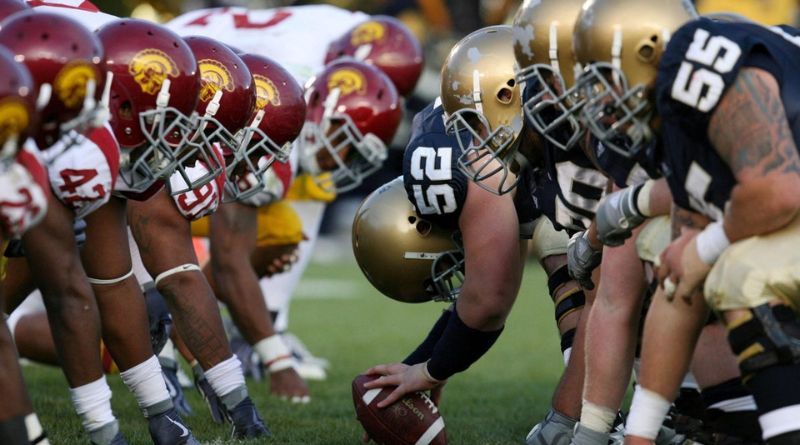FCS football, or Football Championship Subdivision football, represents a tier of collegiate football in the United States under the National Collegiate Athletic Association (NCAA). Often overshadowed by its counterpart, the Football Bowl Subdivision (FBS), FCS football boasts a rich history, passionate fan bases, and a unique playoff system that sets it apart. This article provides an overview of FCS football, its structure, history, and what makes it unique in the landscape of college sports.
Table of Contents
What is FCS Football?
FCS football is one of the two subdivisions of NCAA Division I football, the other being the FBS. The primary distinction between the two lies in the postseason format and the number of scholarships awarded to players. While FBS schools can offer a maximum of 85 full scholarships, FCS programs are limited to 63 scholarships, which can be divided among players in a way that allows for more athletes to receive aid, albeit not necessarily a full ride.
1. Playoff System
One of the hallmark features of FCS football is its playoff system. Unlike FBS teams, which compete for a place in the College Football Playoff (CFP) through regular-season rankings and bowl games, FCS teams qualify for a 24-team playoff bracket based on their performance during the season. This playoff culminates in the NCAA FCS Championship game, typically held in January, where teams compete for the national title.
2. Member Institutions
FCS football comprises a wide range of institutions, from traditional powerhouses to smaller programs. Schools like North Dakota State, James Madison, and Sam Houston State have gained recognition for their consistent performances and championships. The FCS is divided into several conferences, including the Missouri Valley Football Conference, Colonial Athletic Association, Southern Conference, and the Big Sky Conference, among others.
3. Player Development
FCS football serves as an important platform for player development. Many athletes in this division are highly talented and are often seen as future professionals, but they may not have received the same level of exposure as their FBS counterparts. The FCS provides these players with the opportunity to showcase their skills on a national stage, and several have gone on to successful careers in the NFL.
The Importance of FCS Football
FCS football plays a crucial role in the collegiate sports landscape for several reasons:
- Community Engagement: FCS programs often have strong ties to their local communities, with games that draw passionate crowds. The atmosphere at FCS games can be electric, providing a sense of community and pride for fans.
- Accessibility: With fewer scholarships available, FCS schools can often recruit players who might not have been able to compete at the FBS level. This accessibility creates a more diverse and inclusive environment within college football.
- Competitive Balance: The playoff format in FCS creates opportunities for underdog teams to compete for the national title. This competitive balance adds excitement and unpredictability to the postseason, as lower-seeded teams can upset higher-ranked opponents.
FAQs About FCS Football
Q1: What is the difference between FCS and FBS football?
A: The primary differences are in scholarship limits and postseason formats. FBS teams can offer 85 full scholarships and participate in bowl games, while FCS teams are limited to 63 scholarships and compete in a playoff system.
Q2: How many teams participate in the FCS playoffs?
A: A total of 24 teams participate in the FCS playoffs, which culminates in the NCAA FCS Championship game.
Q3: What are some notable FCS football programs?
A: Some well-known FCS programs include North Dakota State, James Madison, South Dakota State, and Eastern Washington, all of which have enjoyed success in the playoffs.
Q4: Can FCS players go to the NFL?
A: Yes, many FCS players have successfully transitioned to the NFL. The league has seen numerous players from the FCS, including current and former stars like Carson Wentz, Jimmy Garoppolo, and Cooper Kupp.
Q5: When does the FCS football season take place?
A: The FCS football season typically runs from late August through early December, with playoffs commencing shortly after the regular season concludes.
Q6: How are teams selected for the FCS playoffs?
A: Teams are selected for the FCS playoffs based on their performance during the regular season, with automatic bids awarded to conference champions and at-large bids given to other deserving teams.
Q7: What is the atmosphere like at FCS football games?
A: The atmosphere at FCS games can be vibrant and passionate, often resembling a community gathering. Fans are deeply invested in their teams, creating a unique and spirited environment.
Conclusion
FCS football may not receive the same level of attention as FBS, but it offers a compelling blend of competition, community engagement, and player development. With its unique playoff system and a diverse array of participating institutions, FCS football serves as an integral part of the collegiate athletics landscape. Whether you’re a longtime fan or new to the sport, following FCS football can provide a thrilling experience filled with excitement and unpredictability.
